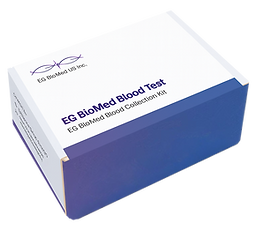Laboratory Developed Tests Services
Pancreatic Cancer Detection
YD Bio's early detection platform uses non-invasive, biomarker-driven liquid biopsy technology to identify pancreatic cancer at its earliest stages, enabling earlier intervention and improving patient outcomes.
THE SCIENCE
Pancreatic cancer is typically diagnosed late, leading to low survival rates. Our proprietary detection method leverages cfDNA liquid biopsy and DNA methylation analysis to identify tumor-derived cancer markers in the bloodstream with high sensitivity and precision, even before symptoms emerge.



KEY BENEFITS
NON-INVASIVE
Requires only a blood sample; no traditional biopsy needed
HIGH SENSITIVITY
Taiwan + Western Cohort Stage I&II 93.8%, Stage III & IV 99.0% sensitivity in preclinical studies
FAST RESULTS
Rapid turnaround supports prompt medical action
COST EFFECTIVE
Lower cost compared to imaging or invasive diagnostic methods
RELIABLE & REPRODUCIBLE
Built on validated methylation and biomarker technology
STATUS
Pancreatic cancer blood test offered as a Laboratory Developed Test (LDT) through our CAP-accredited, CLIA-certified laboratory.
Breast Cancer Monitoring
The EG-Breast Blood Test-P1 is a non-invasive, blood-based test that leverages DNA methylation analysis to monitor breast cancer progression during and after treatment, addressing the critical need for continuous, real-time insights into treatment response and recurrence risk, without relying on invasive procedures or delayed imaging.
THE SCIENCE
Breast cancer remains the most common cancer in women, with up to 30% of early-stage patients developing metastases that drive most cancer-related deaths. Conventional biomarkers like CA15-3 and CEA detect only 60–80% of cases, limiting their reliability.
Circulating methylated GCM2 and TMEM240 have emerged as promising biomarkers, across diverse populations. Their methylation levels mirror treatment response and tumor burden, offering a noninvasive, real-time tool for monitoring disease progression and guiding clinical decisions.



KEY BENEFITS
NON-INVASIVE MONITORING
Blood-based test eliminates the need for traditional invasive monitoring
REAL-TIME INSIGHTS
Enables continuous tracking of patient status throughout treatment and recovery
TAILORED FOLLOW UP
Supports more personalized treatment decisions based on patient-specific biomarker response
STATUS
Currently in clinical trials with promising preclinical results.
Planned to release LDT by November 2025.